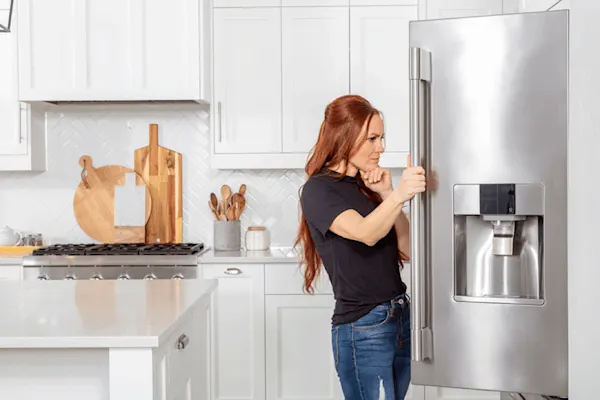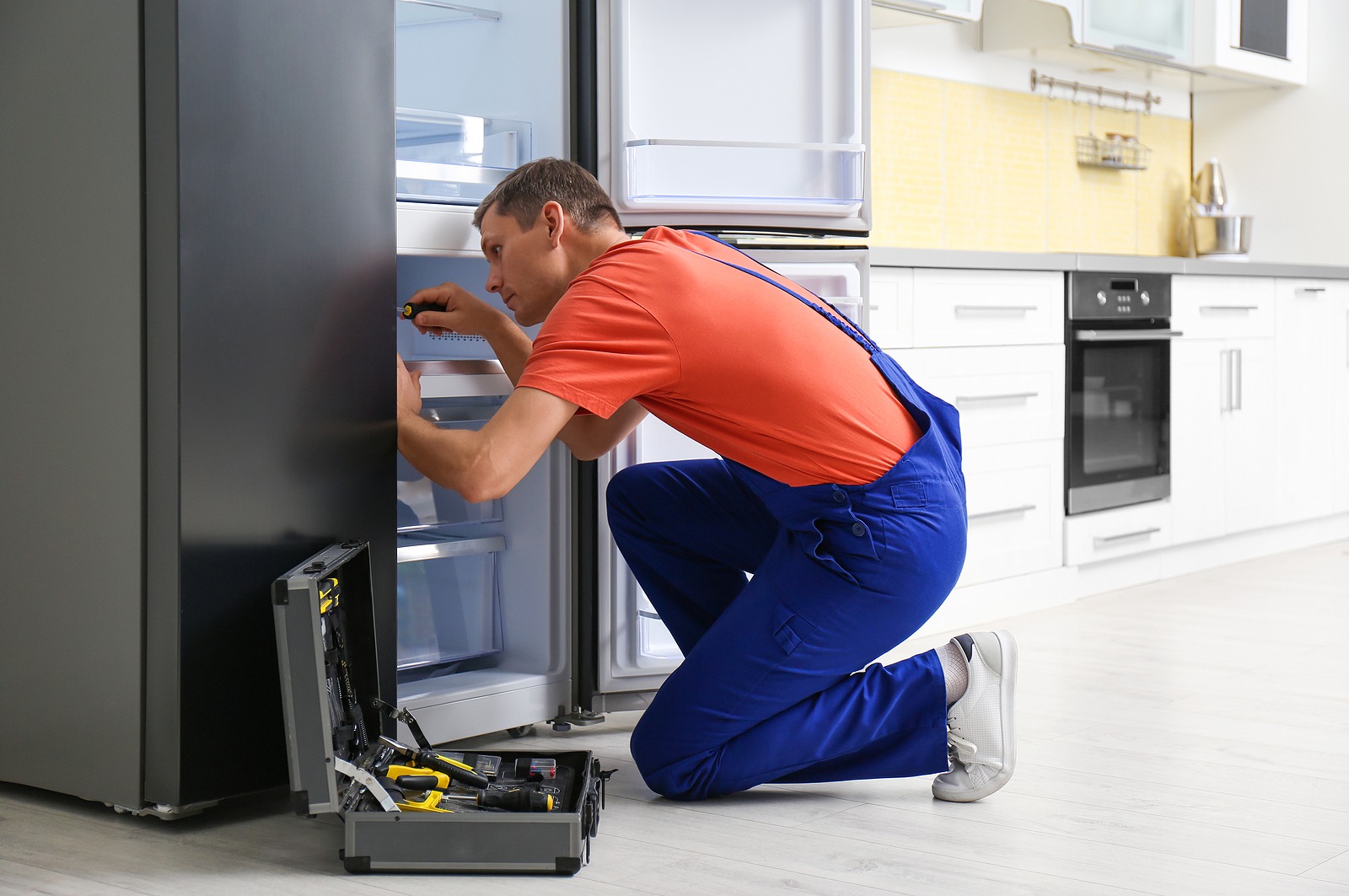Weird Washer Sounds Explained – Dependable Refrigeration & Appliance Repair Service Washer repair near me
Weird Washer Sounds Explained – Dependable Refrigeration & Appliance Repair Service Washer repair near me
Blog Article
The Ultimate Guide to Comprehending Device Fixing in the house
When your fridge quits cooling or your stove refuses to warm, it can really feel frustrating. Understanding device repair work in the house can save you money and time. You'll learn to identify signs, use vital devices, and comply with a systematic troubleshooting process. Prior to you begin, there are critical security precautions you require to take into account. What are the most usual problems, and exactly how can you repair them? Let's check out the basics.
Common Device Problems and Their Signs
When your appliances start breaking down, it's essential to acknowledge the indicators at an early stage. Ignoring them can lead to larger issues and pricey fixings. For instance, if your fridge isn't cooling appropriately, you could see cozy spots or condensation forming. This might suggest a stopping working compressor or an obstructed vent.Your dishwashing machine might show troubles via unclean dishes or unusual noises throughout cycles. If you hear grinding or clanking, it's time to investigate.A cleaning device that will not spin or drain can leave you with soaked washing, suggesting a clogged drainpipe or a malfunctioning pump.Lastly, if your stove's temperature appears off or it takes for life to preheat, you could be taking care of a malfunctioning thermostat. By staying sharp to these signs, you can attend to problems before they escalate right into significant repairs.
Necessary Devices for Device Repair
When you're dealing with home appliance fixings at home, having the right tools is crucial. Fundamental hand devices like screwdrivers and pliers will certainly help you disassemble and deal with various home appliances, while electrical screening tools assure you're working securely with electrical wiring. Let's go over what you require to get going on your repair service trip.
Basic Hand Tools
Having the right tools is important for reliable home appliance repair in your home. Begin with a trusted screwdriver collection, consisting of both flathead and Phillips types, as screws are typical in home appliance setting up. Pliers are additionally vital; they aid with gripping, turning, and reducing wires or small elements. A pair of needle-nose pliers can reach difficult situations quickly. You'll require a great adjustable wrench for tightening or loosening nuts and bolts. An utility blade is convenient for puncturing product packaging or insulation. Do not neglect a durable workbench or surface area to safely organize your devices and components. With these fundamental hand tools, you'll be well-prepared to tackle most home appliance repair work that come your way.
Electric Testing Instruments
Alongside fundamental hand devices, electrical testing tools play an essential role in home appliance repair service. These tools help you diagnose electrical problems and warranty home appliances work securely. A multimeter is important; it gauges voltage, existing, and resistance, permitting you to determine problems quickly. A non-contact voltage tester is another must-have, letting you identify online wires without making straight call, boosting your safety. Clamp meters are excellent for determining current flow in cords without disconnecting them, saving you effort and time. Additionally, circuit testers can rapidly inspect if outlets are operating correctly. By utilizing these tools, you'll streamline your troubleshooting procedure and boost your repair skills, making appliance maintenance a great deal simpler.
Step-by-Step Guide to Diagnosing Home Appliance Issues
When your appliance acts up, it can be irritating, yet diagnosing the concern does not need to be frustrating. You'll learn to identify common problems and apply reliable troubleshooting techniques. Let's stroll through the actions to obtain your home appliance back in functioning order.
Typical Device Issues

Repairing Methods Discussed

Fixing Significant Kitchen Area Home Appliances: A Closer Look
Have you ever before wondered how to take on common issues with your cooking area appliances? Repairing significant kitchen area devices like refrigerators, ovens, and dish washers can be easier than you think. Begin by identifying the trouble-- whether it's a fridge not cooling down or a stove that won't heat find here up. Usually, a simple reset or checking the power source can solve the issue.For fridges, clean the condenser coils and inspect the door seals. If your stove's not home heating, examine the burner and thermostat. Dish washers could just need a clean filter or a reset to obtain them back in activity. Constantly unplug the appliance prior to diving right into fixings to ensure your safety.Don' t forget to speak with the customer manual for certain fixing suggestions connected to your model. With a little patience and the right tools, you can confidently deal with home appliance repair services and conserve cash in the process!

Fixing Laundry Devices: Tips and Techniques
When your laundry appliances begin breaking down, it can feel overwhelming, yet troubleshooting them doesn't need to be a hassle. Begin by inspecting the power supply. Validate the home appliance is plugged in and the outlet is operating. Next, examine the door or lid button; a faulty switch can stop the equipment from operating.For washers, if it's not spinning, look for out of balance tons. Rearranging the garments might address the problem. If your dryer isn't home heating, clean the lint filter and inspect the air vent for blockages.Listen for uncommon sounds; they can indicate a trouble. If your device is dripping, check the tubes for fractures or loose connections. Document any type of mistake codes presented on digital screens, as they can direct you in recognizing the concern. Seek advice from the user guidebook for particular repairing ideas related to your design.
Safety And Security Preventative Measures to Take During Services
Before you begin any home appliance repair work, it's necessary to prioritize safety to prevent mishaps or injuries. Initially, disconnect the device or shut off the breaker to ensure no power reaches it while you function. Usage shielded tools to minimize the threat of electric shock. Put on security goggles and handwear covers to safeguard yourself from sharp sides or debris (Lg Dryer repair near me Dependable Refrigeration & Appliance Repair Service).Make certain your workspace is neat and well-lit, so you can see what you're doing. Maintain kids and animals away from the location to stay clear of disturbances and potential threats. If you're handling gas appliances, be added careful; check for leakages before proceeding.Take your time, and don't rush via fixings. If you really feel unpredictable regarding any step, it's much better to pause and research study than to guess. Following these preventative measures will help create a much safer atmosphere for your do it yourself appliance repair work job
When to Call a Professional for Assistance
How do you understand if it's time to employ a specialist for appliance repairs? If you've attempted basic troubleshooting without success, it's a clear indicator. For example, if your home appliance still won't start or reveals unusual sounds after resetting it, do not wait to look for specialist help.When you see leaks, smoke, or shedding scents, focus on security and call a pro right away. These problems can cause even more significant damages or present risks to your home.Also, if your appliance is under guarantee, contacting a specialist is commonly the most effective course. They can assure that repair services won't void your service warranty, saving you money in the lengthy run.Finally, if you're unsure or uneasy with intricate repair services, it's a good idea to leave it to the specialists. Bear in mind, dealing with challenging problems without the best experience can lead to pricey mistakes. Count on an expert when doubtful!
Regularly Asked Concerns
How Can I Stop Home Appliance Problems in the Future?
To stop appliance issues in the future, you should perform regular maintenance, check for damage, clean filters, and avoid overloading. Remaining proactive will help extend their life expectancy and keep them running smoothly.
What Are the Most Typical Do It Yourself Appliance Repair Work Mistakes?
You could neglect security precautions, avoid repairing actions, or use incorrect tools when trying DIY home appliance repair work. Hurrying the process or neglecting maker standards can result in even more considerable official site problems and costly mistakes. Remain individual and notified!
Just how Do I Know if a Component Requirements Substitute?
You can tell if a component needs replacement by checking for uncommon sounds, leakages, or irregular efficiency. If the device battles to operate correctly or shows visible damage, it's likely time for a replacement.
Can I Use Generic Parts for Home Appliance Repair Works?
Yes, you can utilize generic parts for device repair work, however identify they work - Dependable Refrigeration & Appliance Repair Service Washer dryer belt replacement cost repair near me. Common components may save you money, however they could affect performance or longevity, so evaluate your choices very carefully before making a decision
What Service Warranties Cover Home Appliance Repair Works?
Most device warranties cover repair services for manufacturing defects, yet they usually leave out damage from misuse. Examine your service warranty terms carefully, as some may require making use of licensed technicians and initial parts for protection to stay legitimate.
Report this page